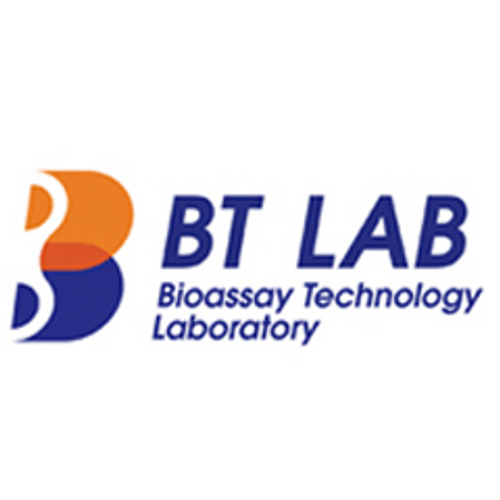Product Description
Human Complement fragment 4a (C4a) ELISA Kit | AE63039HU | Abebio
Species Reactivity: Human (Homo sapiens)
Abbreviation: C4A
Alternative Name: DAMC-258G8.6; C4; C4A2; C4A3; C4A4; C4A6; C4S; CO4; CPAMD2; MGC164979; RG; C4A anaphylatoxin|Rodgers form of C4|acidic C4|complement component 4A
Application: ELISA
Range: 0.312-20 ng/mL
Sensitivity: 0.112 ng/mL
Intra-Assay: ≤6.3%
Inter-Assay: ≤8.2%
Recovery: 1, 04
Sample Type: Serum, Plasma, Other biological fluids
Detection Method: Sandwich
Analysis Method : Quantitive
Test Principale: This assay employs a two-site sandwich ELISA to quantitate C4A in samples. An antibody specific for C4A has been pre-coated onto a microplate. Standards and samples are pipetted into the wells and anyC4A present is bound by the immobilized antibody. After removing any unbound substances, a biotin-conjugated antibody specific for C4A is added to the wells. After washing, Streptavidin conjugated Horseradish Peroxidase (HRP) is added to the wells. Following a wash to remove any unbound avidin-enzyme reagent, a substrate solution is added to the wells and color develops in proportion to the amount of C4A bound in the initial step. The color development is stopped and the intensity of the color is measured.
Product Overview: Complement C4-A is the acidic form of complement factor 4, part of the classical activation pathway. The protein is expressed as a single chain precursor which is proteolytically cleaved into a trimer of alpha, beta, and gamma chains prior to secretion. The trimer provides a surface for interaction between the antigen-antibody complex and other complement components. The alpha chain may be cleaved to release C4 anaphylatoxin, a mediator of local inflammation. Deficiency of this protein is associated with systemic lupus erythematosus and type I diabetes mellitus. This gene localizes to the major histocompatibility complex (MHC) class III region on chromosome 6. Varying haplotypes of this gene cluster exist, such that individuals may have 1, 2, or 3 copies of this gene.
Stability: The stability of ELISA kit is determined by the loss rate of activity. The loss rate of this kit is less than 5% within the expiration date under appropriate storage condition. The loss rate was determined by accelerated thermal degradation test. Keep the kit at 37°C for 4 and 7 days, and compare O.D.values of the kit kept at 37°C with that of at recommended temperature. (referring from China Biological Products Standard, which was calculated by the Arrhenius equation. For ELISA kit, 4 days storage at 37°C can be considered as 6 months at 2 - 8°C, which means 7 days at 37°C equaling 12 months at 2 - 8°C) .
 Euro
Euro
 USD
USD
 British Pound
British Pound
 NULL
NULL








